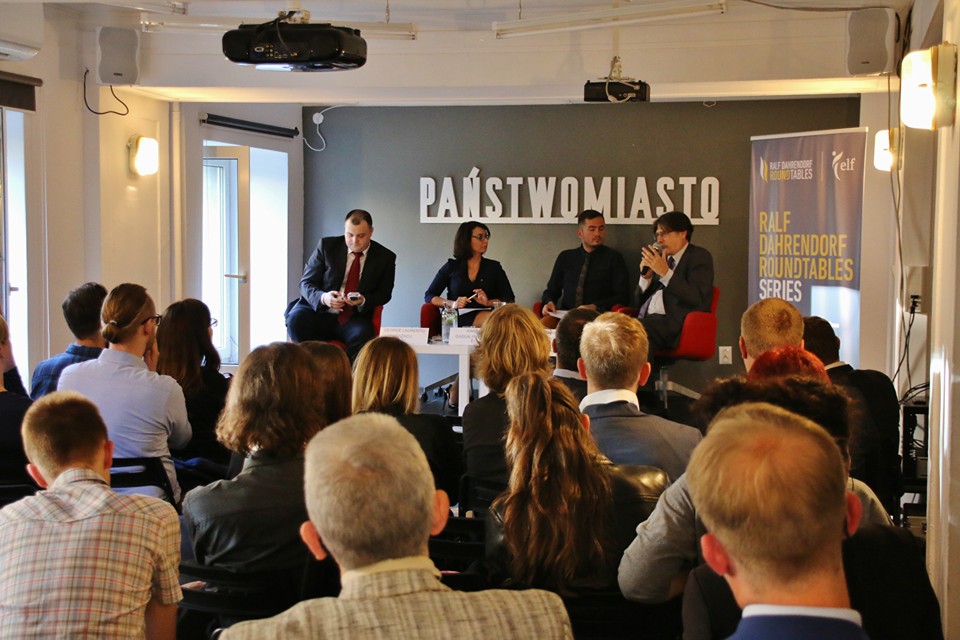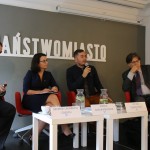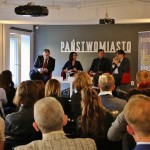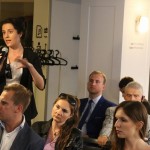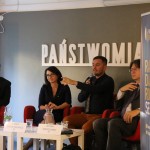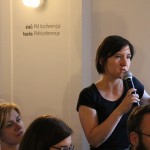On June 15, 2016 representatives of liberal parties and think-tanks gathered in Warsaw for Ralf Rahrendorf Roundtable on Constitutional Struggle in Central Europe to discuss how political parties in Central Europe tried (and are still trying) to limit constitutional courts’ position.
The panelists who took part in the debate were: Kamila Gasiuk-Pihowicz – a lawyer, an MP representing the Nowoczesna political party and a member of the Committee for Justice and Human Rights of the Polish Parliament; Istvan Szent-Ivanyi – a Hungarian politician, a former member of the Hungarian National Assembly, the European Parliament and a former Hungarian ambassador in Slovenia and Laurentiu Cazacu – Romanian lawyer, who works with the Institute of Liberal Studies and ALDE Romania.
The panelists described in detail how constitutional crisis affected Romania, Hungary and Poland, pointing out both the reasons why they occurred, the solutions proposed to solve them and the role played by the European Union.
In the course of the discussion certain patters common for Romania, Hungary and Poland were identified: in all three states the executive bolstered special service, attempted to curb the freedom of the media and left gray areas in the field of civic and human rights, undermining the standards of protection.
Polish MEP Kamila Gasiuk-Pihowicz, in response to numerous questions regarding in particular the current crisis in Poland, presented a number of potential scenarios resulting in settlement of the dispute or its further escalation. She stressed that without real cooperation from the ruling party no solution can be achieved and called for genuine actions to address the issue of the Constitutional Tribunal instead of putting a mere smokescreen by the government.
All panelists stressed the importance of constitutional courts in their respective states and underlined the role they played in developing their legal systems and protection of basic rights. They agreed that in case of a constitutional crisis, reaction of the civil society is vital. Without a strong and unanimous response from the public situation deteriorated rapidly, as the government was under no pressure to limit its actions. However, they were skeptical about emerging civil movements’ ability to reshape the political landscape and create a viable alternative to traditional parties.
The event attracted around 40 participants from a range of political and non-governmental organizations, as well as private individuals from several European countries.



